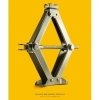Acum exista tentatia sa'si extinda capacitatile de productie, insa asta presupune cheltuieli mari, iar in momentul actual acestea pot fi riscante, mai ales daca cererea de Subaru nu va ramane la aceste cote si pe viitor
the sales boom has taken Subaru by surprise, and the company faces shortages of its newest models. That is forcing Japan's smallest car maker to ask some thorny questions about how much risk it can stomach if it wants to expand.
Subaru plans to increase its Japanese production capacity by 15% by the end of August compared with 2012. Subaru also is investing about $400 million to increase output at its U.S. factory in Lafayette, Ind., by 76% to 300,000 vehicles by 2016.
The U.S. sales surge and a weaker yen helped make Fuji Heavy Japan's most profitable car company between April and June with an operating profit margin of 12.7%, above Toyota Motor Corp.'s 10.6%.
Subaru's two main Japanese plants are already running at full capacity, and manager Masahiro Kasai said the company would likely add more capacity soon.
But Subaru's conservative approach is nearing its limit, said Mr. Kasai.
"It's like when the tube of toothpaste has run out and you try to squeeze out the last little bit from the bottom again," he said. For instance, its Forester crossover's U.S. inventory stands at a 15-day supply, compared with the U.S. industry average of around 60 days.
A Fuji Heavy executive said the company would finance a big expansion if it saw an opportunity for long-term growth.
Right now, Subaru's parent believes the strong demand for the redesigned Forester will run out at some point.
"For Fuji Heavy, no matter how cautious it becomes, that doesn't mean that they are overcautious," because they are so small, says Koichi Sugimoto, an analyst at BNP Paribas.
![]()

























